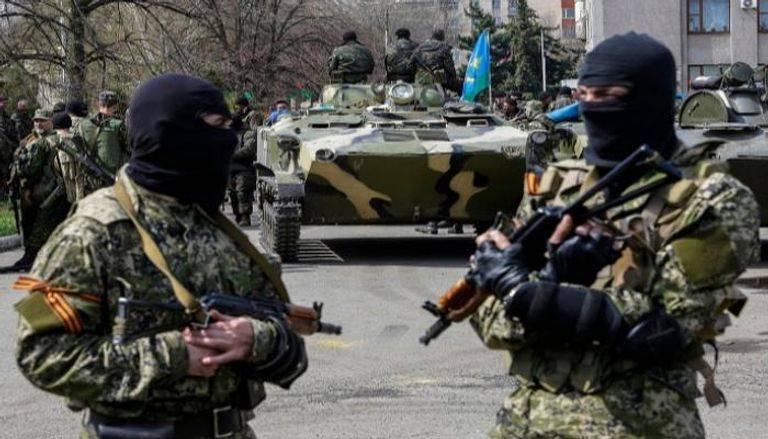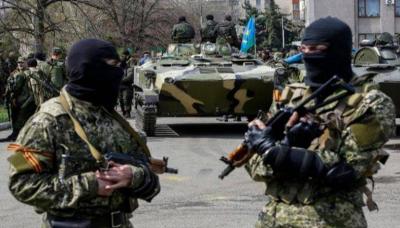The Russia-backed Luhansk People's Republic announced a general mobilization today, Saturday, shortly after a similar decision from the Donetsk People's Republic in eastern Ukraine. According to Russian media reports, the head of the Luhansk Republic, Leonid Pasechnik, signed a decree declaring general mobilization and putting all security forces on maximum alert. This decision aims to counter any attack by Ukrainian forces. The decree means that men aged between 18 and 55 are prohibited from leaving the territory of the separatist republic.
The head of the Russia-backed Donetsk Republic had previously announced a general mobilization in the separatist area in eastern Ukraine, summoning all reserve forces. Ukraine, in turn, confirmed that it had recorded 12 ceasefire violations by separatists in the eastern part of the country on Saturday morning. Concerns have intensified amid clashes in the Donetsk and Luhansk regions in eastern Ukraine, which contain large groups of pro-Russian separatists.
The separatists primarily aim to convert the Donetsk and Luhansk People's Republics into a state called Novorossiya (New Russia). On Friday, pro-Russian separatists accused the Ukrainian army of resuming attacks on their areas in eastern Ukraine. These separatists enjoy a wide range of benefits, including Moscow's recognition of certifications regarding the origin of goods produced by entities operating in the Donbas region, which includes Donetsk and Luhansk.
Russian authorities do not impose import and export restrictions in the two republics, allowing goods from Donetsk and Luhansk to enter their markets under the same conditions as Russian goods, and even increasing their quantities in domestic retail chains. Western nations have expressed concerns for weeks about the imminent threat of a Russian invasion after Moscow amassed more than 100,000 soldiers at the Ukrainian border and conducted several military drills, creating an explosive situation that has caused the worst crisis between the West and Moscow since the Cold War.
Experts believe that the buildup of Russian troops at the Ukrainian border gives Moscow a wide range of options, considering that specific, targeted military intervention seems more likely than a massive operation. The Kremlin denies planning a military attack, emphasizing that de-escalation requires written guarantees, particularly concerning NATO's efforts to strengthen its position in the historically Russian sphere of influence.
In recent weeks, Russia has deployed tens of thousands of soldiers, tanks, and artillery near the Ukrainian border, supported by military resources brought from the far east of the country. On Friday, Ukraine reported that it had been subjected to a massive cyberattack targeting several of its ministries.




